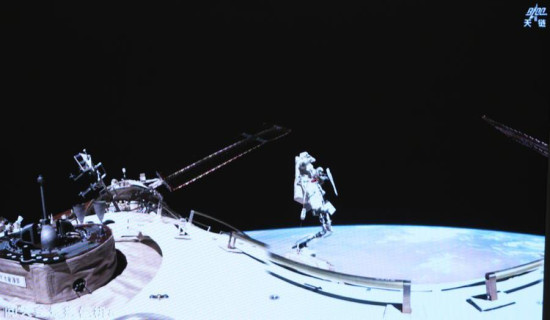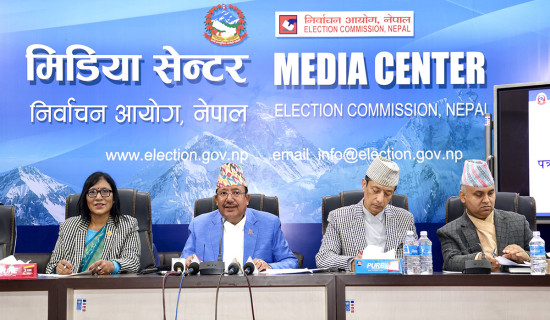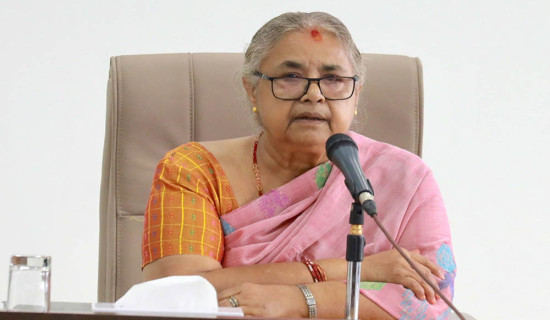- Tuesday, 20 January 2026
UN report recommends global fund for artificial intelligence
By Narayan Prasad Ghimire, Kathmandu, Sept 20: As the artificial intelligence (AI) is influencing almost everything related to human being with its exponential growth, especially in recent years, it obviously drew wider attention.
Promising benefits on the one hand has cheered the investors on AI, while the fear of getting the stage set for AI to walk scot free is running high.
The need of design and deployment of AI with adequate human supervision is therefore voiced from across the globe. Though hefty investment by a handful of companies to advance AI has celebrated by some, many are gripped with trepidation of widening divide and regulatory mess.
From labour and employment to decision making that essentially require human, AI grew alarmingly invasive which ultimately prompted for global call out for its governance. How it should be forwarded; who can be the overseers and the modality required for its design and expansion are the issues surrounding its governance.
In this connection, the UN AI Advisory Body released a report on governance of the AI which has underlined the need of holistic global approach that spans from political to human rights, and ethical to technical spheres. "Such an approach can turn a patchwork of evolving initiatives into a coherent, interoperable whole, grounded in international law and the SDGs, adaptable across contexts and over time," it stated.
The report identifies the global AI governance gaps and recommends enhancing global cooperation. "A global approach to governing AI starts with a common understanding of its capabilities, opportunities, risks and uncertainties," the report mentioned, adding that 'timely, impartial and reliable scientific knowledge and information about AI' are among the Member States.
The advisory body has furnished seven recommendations in the report- international scientific panel on AI; policy dialogue on AI governance; AI standards exchange; capacity development network; global fund for AI; global AI data framework; and AI office within the Secretariat.
About the scientific panel on AI, the document stated, "The international, multidisciplinary scientific panel on AI could collate and catalyse leading-edge research to inform scientists, policymakers, Member States and other stakeholders seeking scientific perspectives on AI technology or its applications from an impartial, credible source." Such panel could be formed by learning from the previous initiatives like the IPCC; and the United Nations Scientific Committee on the Effects of Atomic Radiation, according to the report.
Also underlined in it is- catalyzing and aligning regional and global AI capacity efforts and capacity building of the public officials on AI governance so that development could be forwarded in a human rights friendly manner.
As part of the UN Secretary-General’s Roadmap for Digital Cooperation (A/74/821), a multi-stakeholder High-level Advisory Body on Artificial Intelligence was proposed initially in 2020 and formed later in October 2023 so that it could carry out related analysis and furnish recommendations on how AI's international governance could be forwarded.(RSS)
















